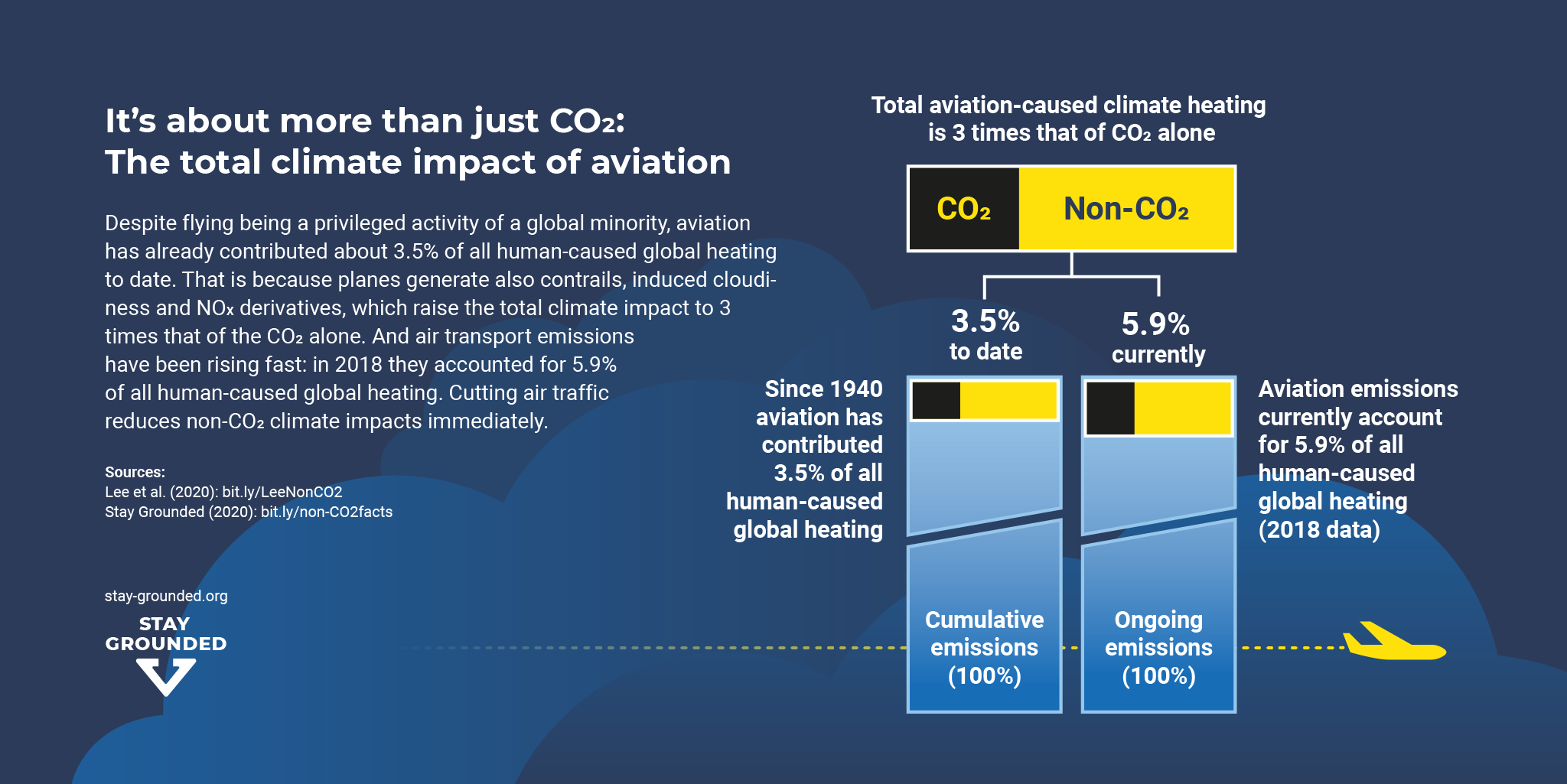FACT SHEET
It’s about more than just CO2
Aviation must reduce its total impact on climate
For a long time, the aviation industry and governments have ignored the fact that it’s not only about CO2: burning kerosene at altitude also generates contrails, induced cloudiness and NOx derivatives that, although short lived, contribute substantially to global heating. This has led to a public perception of air travel being a relatively small problem, and to a lack of effective mitigation of the industry’s climate impact.


